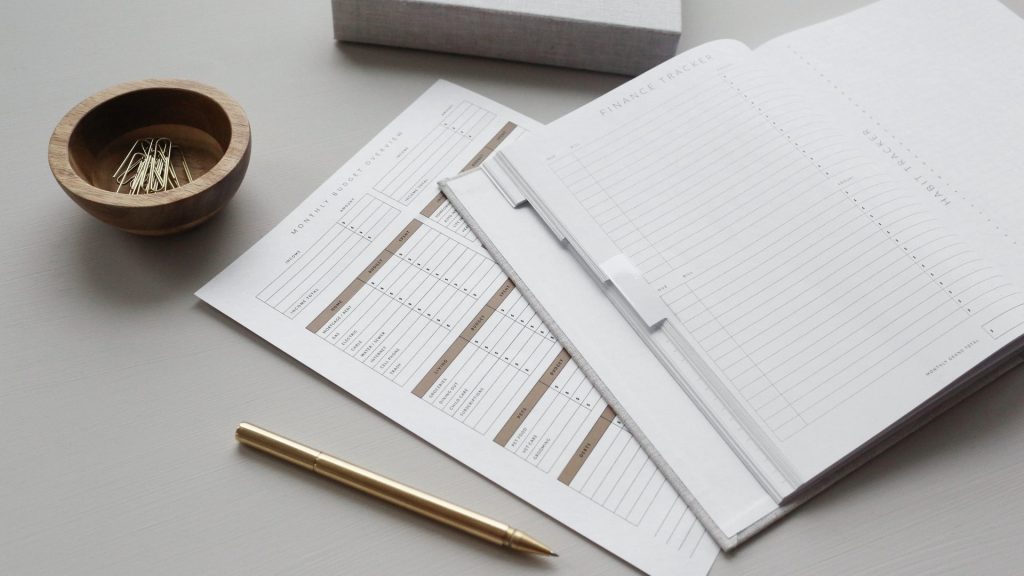A third late-payment notice was issued last week, your client’s account is already overdue by two months. You seem to live inside your inbox, waiting for any communication explaining why you haven’t received money for your services. You opened your bank account for the third time today, only to find… Nada.
So you slowly sink back into your slouchy chair with a contented smile washing over your face. Thank the good heavens for all the money trees you have growing out back, right?
Well… Not really.
A business lugged down by late payments can struggle to undertake regular business activities. Financial duress can result in fewer payment reviews, payroll restrictions, and smaller employee bonuses, diminishing staff performance and morale.
But there are robust systems you can put in place to recover overdue payments and get your business’s financial health back up to scratch quickly. Let’s take a look at the best way to collect past-due invoices.
How Do I Deal With Past Due Accounts?
Some clients forget to pay. There are clients who don’t seem to comprehend the severe implications tardy accounts can have on small businesses. And then some outright don’t want to pay.
The best way to manage non-urgent pending payments is to implement a vigorous accounts receivable collections process and proactively target overdue accounts to recover your late invoices.
If a client is being negligent about an overdue account, it’s valuable to develop an in-house strategy that will discourage late payments from the beginning. This generally involves polishing your internal records and systems, as well as communicating upfront about your expectations.
Respect Your Limits
The most important consideration is establishing your bottom line and knowing when to take legal action. If your extensive collection efforts end up fruitless, often the only way to recover delinquent accounts is via third-party collections.
Process servers can deliver important legal documents to severely late-paying customers and help you recoup hefty amounts owed to your small business without the costly legal fees of an attorney. If your business is grinding to a halt due to unpaid invoices, have a chat with the experienced process servers at D&R Legal to get your cash flow running smoothly again.
Set Up a Collections Process
Establishing an internal collection process with actionable steps and strong deadlines makes it easier for small business owners to proactively manage collections from a past-due account. Focus on your most urgent overdue invoices first, so tricky clients don’t slip through the cracks.
Consider that protecting your customer relationship is important for your public reputation and ongoing business prospects, so ensure you keep your communications professional and avoid being angry or making threats.
Make a Timeframe For Overdue Payments
When it comes to setting up a process for collecting past due invoices, timeframes are your friend. From the framework below, establish which measures you plan to take and when you plan to take action. Respecting this timeframe will not only give you a schedule to proactively pursue overdue accounts – making it more likely that they will be paid – but it ensures that all of your clients are treated equally under similar circumstances.
Timelines keep you accountable for your business finances, and they demonstrate to your clients that you have systems in place.
Send an Overdue Notice Via Email
Some people need a reminder email or two, more than others. To save time and money, develop an email template for two or three messages to send to all clients during the due period for your invoices.
It’s a good idea to send the first email as a reminder that an invoice will be due a few days before it actually is. Then follow up with a few emails to remind customers that accounts are overdue in the ensuing weeks.
Some people simply forget to pay, and banking transactions can bounce for many reasons, so try not to hassle your customers. Provide details on how to make a payment in your emails to rule out any potential confusion.
Call Your Past Due Accounts
If it’s been a few weeks and you still haven’t heard a peep from your accounts, it’s time to follow up with phone calls. Understand your desired outcome before you pick up the line.
Do you seek to understand the hold-up? Do you want to know the date they plan to pay the invoice? Are you simply calling to remind them?
During the call, make sure you’re talking to the person who can action the result you want. Introduce yourself, then explain the purpose of your call briefly and clearly. Summarize your discussion at the end of the call to clarify that both parties are on the same page. Understandably, emotions may be running high when your business is experiencing financial strain, so try to keep your demeanor professional on phone calls.
Send a Past Due Invoice Letter
A past due invoice letter is a formal notification of past due amounts owed. Financial and admins teams receive these daily, so you can almost guarantee they will open the demand letter.
Don’t be afraid of increasing the tone at this stage. By this point, you’ve already sent sufficient reminders for your unpaying client to be aware that their payment is expected by your company. While it’s still possible, the likelihood that your client has simply overlooked or forgotten their bill by the time they receive the letter is low.
Include all past-due invoices in print, as well as instructions for how to pay. You may wish to encourage them to call and discuss the payment methods with you, so they know you seek at least a conversation if they can’t transfer the funds immediately.
Take Legal Action
When you’ve tried everything in the book – and your customer is still not paying their due bills – it’s time to seek legal action. If you get to this stage without receiving any communication, explanation, or payment, then there’s no gain in wasting more time on fruitless efforts to unresponsive overdue accounts.
Cash flow is the financial lifeblood of your company, and your time is better spent keeping your business afloat than continuing to chase invoices with no results. Any accounts receivable over 90 days past due should be handed to a professional collection firm if they are large enough or get ready to take things to the next level.
For most people that next level will be Small Claims Court. Visit our Ultimate Guide to California Small Claims Court here. You will learn everything you need to know about the small claims process. Once you’re ready to move forward with your small claims action check out our small claims page and create an account.
D&R Legal process servers can take the pressure off business owners who desperately need to recover debt from late-paying customers. We offer a smooth and streamlined service and will diligently serve process, to ensure you recover unpaid invoices at an affordable rate.
If you’re running out of time or patience with a past-due balance, speak to the experts at D&R Legal today.
Develop an Inhouse Strategy
While the above primarily covers external measures you can take to recover your balances owing, consider that there may be internal strategies your business can implement to reduce your chances of unpaid invoices. The following ideas may serve as a guideline to help your invoices stay up to date.
Get Paid Upfront or on Completion, Don’t Invoice
Is it possible for your business to no longer invoice your clients? Can you require a Credit Card or ACH on file and simply charge the electronic payment once the job is done?
My industry and my business for that matter, was a “Do The Work” and “Invoice The Customer” for millennia and maybe we would get paid within 30 days, but it was probably closer to 90 days.
We started taking credit cards a decade or more ago and drastically changed our cash flow for the business but we would still invoice clients that wanted it as long as we had a card on file. It wasn’t until Covid hit and we had the time and need to implement a new cloud based backend to our business that allowed us to require all clients create an account on our website and pay upon completion of the assignment.
We no longer need invoice clients, except for those who’s ACH or Credit Cards did not go through and most fix that problem within a day or so. We now rarely deposit checks and our business is the healthiest it has ever been.
Determine When You Expect Accounts to be Paid
One of the best ways to manage overdue payments is understanding your ideal timeframe for payments received. Many businesses choose a specific day for all invoices to be received before, in the month following service delivery. Others may expect payment within exactly one month from the date the product or service was provided.
For example, if you offer a service on June 13th and your invoice collection day is the 20th of each month, you would expect your client to pay for the service in full by July 20th.
By clearly explaining these dates before you engage in business with someone, there’s less room for confusion on the client’s end.
Develop a Detailed Credit Policy
Any collection process should start with a good credit policy. Layout your requirements for credit extensions, terms and conditions, and the actions that will be taken should an account become delinquent.
Formulate a separate document for your credit policy, or write it into your contracts, so clients are fully informed before you do business with them to reduce your chances of late payments. All service and sales staff should be familiar with your credit policy and be able to explain it in detail to new clients.
Customize Your Invoices
The quality of the information provided on your invoices can significantly impact how clients go about payment. Include as much detail as possible to make all aspects of the payment process simple and easy for buyers to pay. Here’s how to do it:
- Keep your invoice format consistent and uncluttered
- Include the word “Invoice” on the document to be clear
- Write an individual invoice number for records
- Write your remittance address and how you can be contacted
- Put your Employer Identification Number (or Tax ID)
- Describe in detail the product or service
- Write the owing amount
- Include any (GST) Goods and Services Tax and (VAT) Value-Added Tax payments if required
- State the payment due date
- Include payment terms and conditions
Buyers tend to pay on time when a payment date is specified on an invoice. Instead of writing “Due on Receipt” or “Payment Due 30 Days From Receipt,” the invoice should read “Payment Due July 20th,” for instance.
Create a Risk Classification for Delinquent Accounts
Classify clients with a history of missing payments differently from those with a good track record or new clients who pay late. If you have built a long-standing relationship with a client that settles invoices late – but always pays – they may be considered higher risk than clients who consistently pay on time but lower risk than new clients with overdue invoices.
Final Thoughts
Chasing unpaid accounts from clients is one of the hugest hassles small business owners have to endure. It’s time-consuming, detrimental to company operations, and can affect the satisfaction and productivity of your team.
While it’s critical to have solid systems and procedures implemented to mitigate the negative effects of unpaid receivables, sometimes you need to put the work into the hands of the professionals. By hiring an experienced process server, you know you have, a legal professional by your side who can lift the burden of chasing debt from your shoulders when things get too much.
If you need professional help recovering unpaid invoices, speak to the team at D&R Legal today to get your cash flow back on track.
You might also enjoy these recommendations: San Francisco Process Server











